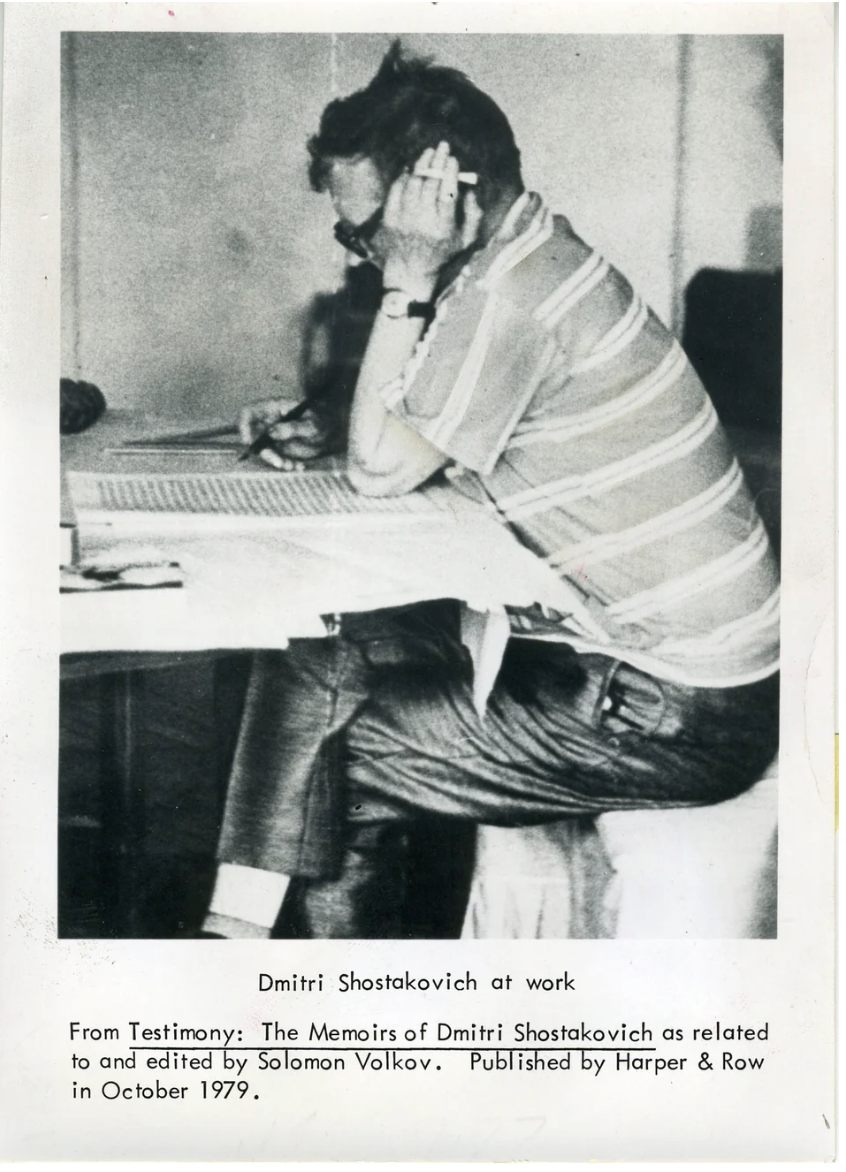Dmitri Shostakovich and Sofia Gubaidulina (An essay on resilience*)
Between 1950 and 1951, Dmitri Shostakovich composed his 24 Preludes and Fugues, Op. 87 — a cycle dedicated to Johann Sebastian Bach, who embodied for him formal clarity, integrity, and order. The work was inspired by his student, the pianist Tatiana Nikolaeva, performing The Well-Tempered Clavier at the Leipzig Competition commemorating 200th anniversary of Bach’s death, left a profound impression on him.
At the close of the Stalinist era, when official ideology still demanded that the composer serve as “the voice of the people,” the tension between public role and inner state became unbearable for Shostakovich. Bach, in this context, was not a retreat into academicism, but offered a form of spiritual refuge.
The cycle traces a full emotional arc — from exhaustion, melancholy, and sorrow to the burden of acceptance; from spasms of anxiety and contained anger to moments of sudden resistance. Gradually, hope emerges, followed by clarity and quiet resolve. The composer preserves emotions he holds most dear: tenderness, humour, love.

— D. Schostakovich with the daughter
Rather than a formal homage, this cycle is an architecture of endurance — an interior space of tempo, rhythm, and silence in which one may linger, and withstand.
Tatiana Nikolaeva recalled Shostakovich describing the cycle as “a vast dramatic tapestry.” Years later, his close friend, the conductor Kurt Sanderling, said to her after a performance: “You know, the Preludes and Fugues — they are Dmitri Shostakovich’s intimate diary.

— D. Shostakovich at work, Original Press Photograph taken from _Testimony_
These fugues emerged from a period of profound isolation — a time when speech was no longer possible, yet the need to be heard remained.
To much of Europe, however, Shostakovich still appeared as a loyal Soviet composer, a servant of the regime. His inner integrity remained inaudible because the majority of the international public lacked the means and framework to recognise it.
This began to change with the publication of Testimony (1979), the memoirs of Shostakovich compiled by Solomon Volkov from a series of conversations. For the first time, a portrait emerged of a composer who resisted — not through proclamation, but through structure.
Around the same period, Sofia Gubaidulina — a Soviet composer closely aligned with underground spiritual movements and avant-garde traditions — composed Offertorium (1979–1980), a violin concerto. Like Shostakovich at the time of Op. 87, she worked in ideological isolation, without institutional support. She wrote "into the drawer" — composing not to be heard, but not to disappear. For her, music became an act of survival.
The title Offertorium refers to the offertory of the Latin Mass — the ritual of symbolic offering. The composition is built around the Bach chorale Das alte Jahr vergangen ist, and enacts a gesture of sacrifice: the theme appears, vanishes, and finally returns in transformed form.
If Op.?87 spoke in a language the world was not yet prepared to hear, Offertorium emerged at a time more attuned to its restrained urgency. Yet both works embed resistance into form. Composed under close scrutiny, they risk expression where silence might have seemed safer — but to remain silent would have been a deeper erasure. In music shaped by pressure, both composers embed resistance in tension, fragmentation, and formal invention to assert presence, memory, and interior resolve.
*Related to the sound installation Fuga Ascendente at Lerici Music&Opera festival 2025
References:
Testimony: The Memoirs of Dmitri Shostakovich, compiled by Solomon Volkov, Harper & Row, 1979.
Julian Barnes, The Noise of Time, Jonathan Cape, 2016.
William Kentridge, Oh To Believe in Another World, 2022 — a film installation drawing on Shostakovich’s Symphony No. 10.
Letters to a Friend. Dmitri Shostakovich — Isaak Glikman, DSCH — Kompozitor, Moscow–St. Petersburg, 1993.
Tatiana Nikolaeva, quoted in various interviews and writings on Op. 87.
Recording of the phone conversation between Dmitri Schostakovic and David Oistrakh, (1908-1974), the premiere Soviet violinist, violist and conductor of the mid-twentieth century
‘At 90, a Composer Is Still Sending Out Blasts’, The New Yorker article on Sofia Gubaidulina